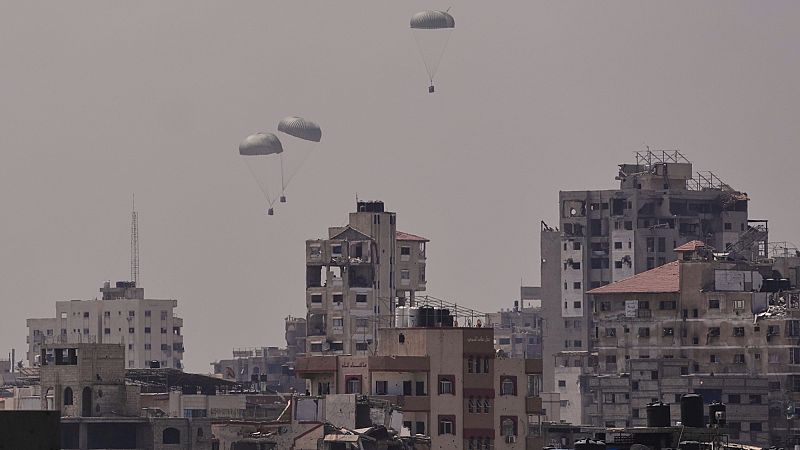
Escalation in Gaza: International Reactions and Concerns
The recent decision by Israel to take control of Gaza City has sparked widespread condemnation from European and global leaders. This move has been criticized for potentially worsening the already dire humanitarian crisis in the Strip, leading to significant international repercussions, including Germany's suspension of military exports that could be used in Gaza.
Israeli Security Cabinet Approves Controversial Plan
The Israeli security cabinet approved the controversial plan on Friday, marking a new phase in the country’s nearly two-year-long conflict with Hamas. The decision was made after extensive discussions among senior security officials. Prime Minister Benjamin Netanyahu had previously suggested that the military would "take control of all Gaza," although he claimed Israel had no intention of occupying the area permanently.
Germany's Shift in Policy
German Chancellor Friedrich Merz announced a significant policy shift by suspending the export of military equipment that could be used in Gaza until further notice. This decision broke with the Staatsräson, a core principle of German foreign policy that links Israel's security to Germany's national interest. Merz emphasized that the Israeli government must ensure civilians receive necessary supplies and avoid any steps toward annexing the West Bank.
UK's Strong Condemnation
UK Prime Minister Keir Starmer strongly condemned the Israeli security cabinet's decision, stating it was wrong and urging immediate reconsideration. He warned that the action would not end the conflict or secure the release of hostages but would instead lead to more bloodshed. Starmer called for a ceasefire, increased humanitarian aid, and a negotiated solution, emphasizing that Hamas should play no role in Gaza's future.
European Leaders Voice Concerns
Other European leaders echoed similar concerns. Spain's Foreign Affairs Minister José Manuel Albares condemned the move, calling it a provocation that would increase destruction and suffering. Dutch Foreign Minister Caspar Veldkamp described the plan as a "wrong move" and highlighted the need for immediate humanitarian improvements. Slovenia's Foreign Minister Tanja Fajon urged Israel to halt any attempts at military occupation, stressing the need for an immediate ceasefire.
Finland's Foreign Minister Elina Valtonen expressed deep concern over the worsening conditions in Gaza, calling for an immediate ceasefire and the release of hostages. European Commission President Ursula von der Leyen urged Israel to reconsider its decision, emphasizing the importance of hostage releases, humanitarian aid, and a ceasefire.
European Council President António Costa criticized Israel's actions, stating they violated international law and the EU's recent agreements to improve conditions in Gaza. He called for consequences for EU-Israel relations.
International Reactions
US President Donald Trump commented that the decision was "really up to Israel" and blamed Hamas for stalled negotiations. UN High Commissioner for Human Rights Volker Türk condemned the move, stating that Israel's plan must be halted immediately, as it contradicts international court rulings and the right of Palestinians to self-determination.
Divided Reactions Within Israel
Within Israel, reactions were divided. Opposition leader Yair Lapid criticized the government's plan, saying it went against military advice. Chief of the General Staff Lieutenant General Eyal Zamir warned that the plan endangered hostages and stretched military resources. Despite these concerns, Netanyahu denied intentions of permanent control, stating Israel aims to establish a security perimeter and hand over the Strip to Arab forces.
Ongoing Humanitarian Crisis
Humanitarian organizations continue to warn of severe conditions in Gaza, where displacement and hunger are increasing daily. The war has displaced nearly the entire population, destroyed over 60% of buildings, and brought 2 million residents to the brink of famine. The conflict began with a Hamas attack on Israel, resulting in over 60,000 Palestinian deaths and nearly 900 Israeli soldiers killed. Fifty hostages remain, with fewer than half believed to be alive.
